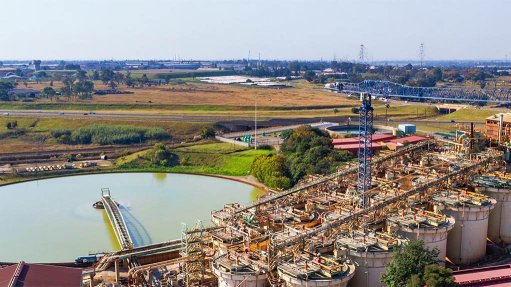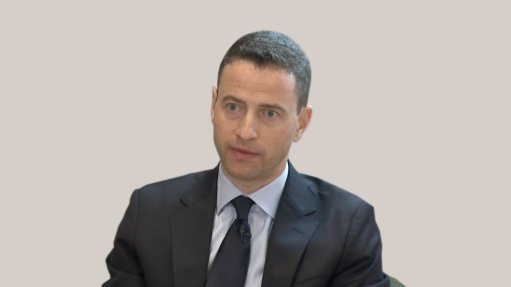Speakers deliberate waste management challenges amid moves to a circular economy
The concept of the circular economy has gained significant traction as a sustainable alternative to traditional linear economic models in recent years and is characterised by the principles of waste elimination, product circulation and environmental regeneration.
As a result, the circular economy has become a focal point in discussions about sustainable development, considering that the approach focuses on alternative waste management methods while focusing on eliminating waste and pollution, prolonging the lifespan of products and materials, and regenerating natural systems.
Contrary to the misconception that it solely revolves around recycling, the circular economy encompasses various sectors, including energy, water, waste, agriculture and manufacturing, with positive outcomes in health, education, environment and biodiversity.
However, for businesses to thrive in this sustainable new world, waste management service provider EnviroServ Waste Management on-site national commercial manager Yolandi Kruger has emphasised that businesses would need to focus on several key factors to pivot toward a circular economy.
First is the issue of resource scarcity, where the rapid depletion of natural resources “necessitates a shift away from reliance on virgin materials”.
Speaking during Creamer Media’s Waste Management and the Circular Economy webinar on October 4, she explained that embracing a circular economy helped break this reliance, ensuring a stable and sustainable supply chain.
The circular economy also significantly reduced environmental impact, mitigating pollution, greenhouse-gas emissions and habitat destruction, she added, pointing out that, for instance, using recycled materials drastically reduced energy and water consumption compared with producing virgin products.
Additionally, circular economy practices offer substantial cost savings, both through the buying of reused or recycled materials and the rebates associated with recycling efforts.
“Consumer demand is also a driving force, as more environmentally conscious consumers seek products made from recycled materials, pushing businesses to adopt circular practices. Ethical responsibility plays a crucial role as well, compelling both individuals and companies to adhere to the waste hierarchy, focusing on reduction, reuse, and responsible recycling,” she said.
Circular economy transition consultancy Circular Vision sustainability consultant and associate Bonté Edwards meanwhile suggested “redesigning products and processes to minimise waste generation”, adding that these systems and processes should focus on eliminating waste from the system.
“This shift requires collaboration with local communities and startups, encouraging innovation and integrating circular practices into the local economy,” she said.
Moreover, she noted that businesses could leverage renewable energy sources, such as solar, wind and green hydrogen, to power their operations, as these “not only reduce their environmental impact but also lead to cost savings over the long term”.
By adopting circular business models, which prioritise reuse and recycling, while transitioning to renewable energy, Edwards is confident that industries can achieve environmental gains, create jobs and enhance competitiveness by operating more efficiently and reducing manufacturing costs.
Electronic waste (e-waste), however, presents challenges of its own, and highlights the need for effective recycling practices, said industry organisation EPR Waste Association of South Africa founder and CEO Keith Anderson.
He explained that e-waste, being the fastest-growing waste stream globally, “necessitates stringent regulations and responsible management”.
Anderson stressed the importance of policy implementation, citing extended producer responsibility (EPR) regulations as essential for managing and recycling e-waste effectively.
Collaborative efforts between African countries were vital, he added, as this collaboration allowed countries to “learn from one another's experiences and adapt cost-effective waste management practices”.
Initiatives like responsible e-waste recycling and regional collaboration can significantly contribute to mitigating the environmental impact of e-waste, while fostering sustainable development across the continent, he noted.
Scientific research and development organisation Council for Scientific and Industrial Research principal researcher in the Sustainability, Economics and Waste Research Group Suzan Oelofse, meanwhile, addressed the challenges faced by municipalities in managing waste effectively, especially in rural areas.
She lamented that financial constraints, operational limitations, legislative complexities and inadequate planning and management were significant hurdles.
Financial incentives, such as specific infrastructure grants, to support municipalities in their waste management endeavours, were critically important, she noted, adding that non-financial policy instruments like the EPR regulations “can facilitate collaboration between municipalities and informal waste pickers, fostering a more efficient waste management ecosystem”.
As such, she expressed confidence that clear definitions of waste, coupled with strategic policy implementations, could help municipalities navigate the complexities and transition toward a circular economy, creating more sustainable and efficient waste management systems.
Kruger, Edwards, Anderson and Oelofse were panellists during the webinar facilitated by industry organisation Institute of Waste Management of Southern Africa’s Chris Whyte, who emphasised that practical, real-world projects “underscore the need to move beyond theoretical discussions”.
Article Enquiry
Email Article
Save Article
Feedback
To advertise email advertising@creamermedia.co.za or click here
Press Office
Announcements
What's On
Subscribe to improve your user experience...
Option 1 (equivalent of R125 a month):
Receive a weekly copy of Creamer Media's Engineering News & Mining Weekly magazine
(print copy for those in South Africa and e-magazine for those outside of South Africa)
Receive daily email newsletters
Access to full search results
Access archive of magazine back copies
Access to Projects in Progress
Access to ONE Research Report of your choice in PDF format
Option 2 (equivalent of R375 a month):
All benefits from Option 1
PLUS
Access to Creamer Media's Research Channel Africa for ALL Research Reports, in PDF format, on various industrial and mining sectors
including Electricity; Water; Energy Transition; Hydrogen; Roads, Rail and Ports; Coal; Gold; Platinum; Battery Metals; etc.
Already a subscriber?
Forgotten your password?
Receive weekly copy of Creamer Media's Engineering News & Mining Weekly magazine (print copy for those in South Africa and e-magazine for those outside of South Africa)
➕
Recieve daily email newsletters
➕
Access to full search results
➕
Access archive of magazine back copies
➕
Access to Projects in Progress
➕
Access to ONE Research Report of your choice in PDF format
RESEARCH CHANNEL AFRICA
R4500 (equivalent of R375 a month)
SUBSCRIBEAll benefits from Option 1
➕
Access to Creamer Media's Research Channel Africa for ALL Research Reports on various industrial and mining sectors, in PDF format, including on:
Electricity
➕
Water
➕
Energy Transition
➕
Hydrogen
➕
Roads, Rail and Ports
➕
Coal
➕
Gold
➕
Platinum
➕
Battery Metals
➕
etc.
Receive all benefits from Option 1 or Option 2 delivered to numerous people at your company
➕
Multiple User names and Passwords for simultaneous log-ins
➕
Intranet integration access to all in your organisation




















